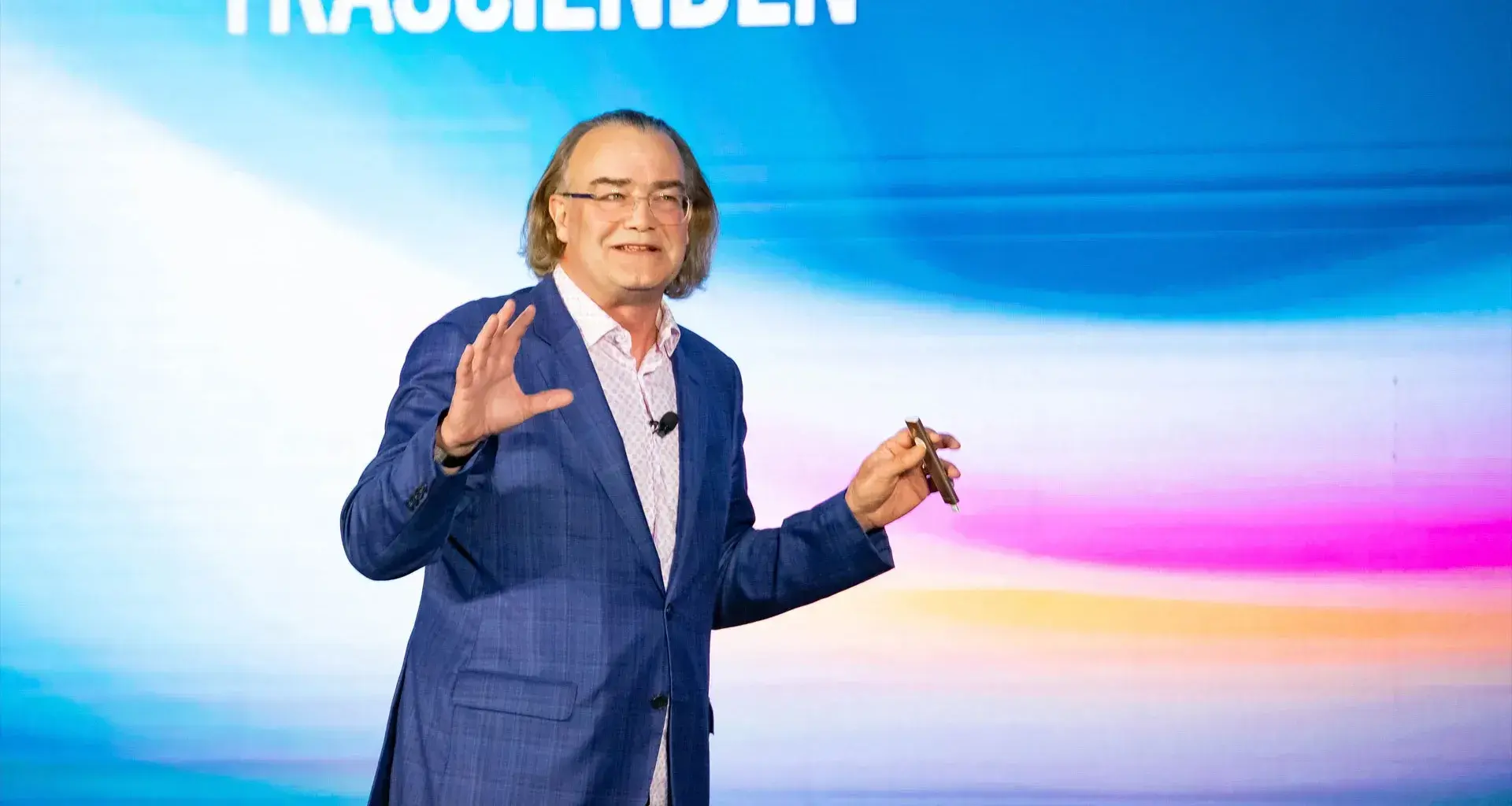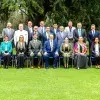In a purely fictional setting, media like cinema and television have shown their vision of what the world could be like in a few years by imagining dystopic and catastrophic futures; however, Peter Leyden, a journalist and expert in future trends, sees an encouraging panorama for humanity with the year 2050 just round the corner.
In a couple of talks he gave to students and board members of Tecnológico de Monterrey, Leyden spoke about how the coming 25 years could be historic and see groundbreaking events for humanity.
“The next 25 years will be remembered as a time of great progress that brought about the transformation of the world,” Leyden told the Tec community.
Leyden’s vision is extremely useful to David Garza, the Rector and Executive President of Tec de Monterrey, for putting the decisions he will have to make in the coming years into perspective.
“He is a leader who inspires us not just to think about challenges, but also opportunities we can take advantage of in the future,” said Garza.
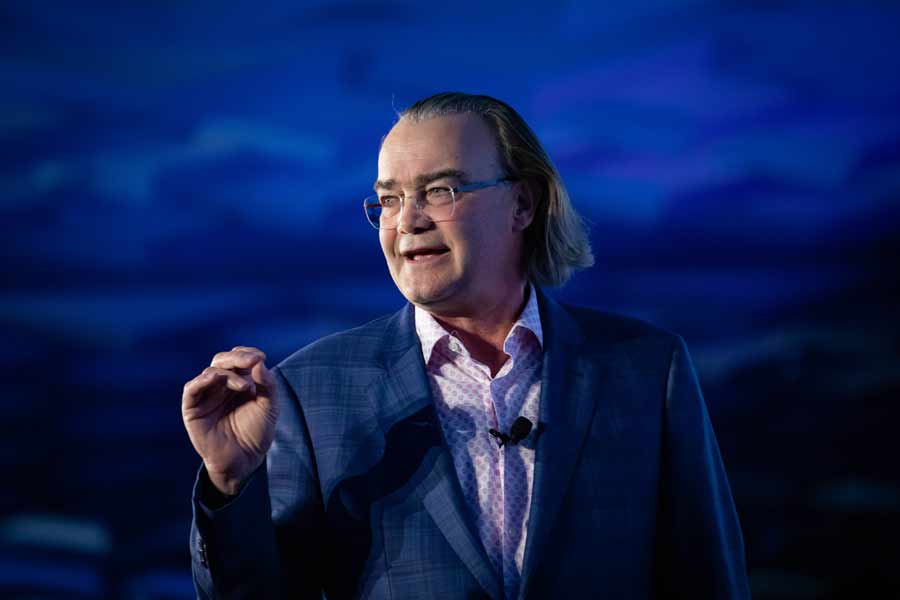
Looking at the world from a different perspective
The futurologist and co-author of “The Long Boom: A Vision for the Coming Age of Prosperity” detects a certain fear when talking about the future in some sectors.
“The mass media, people in politics and other stakeholders in general all grew up, came of age, and learned their trade under the old system, which explains why their perspective is one of dejection, fatality and desperation because things have stopped working,” he explained.
“But if you shift your perspective to that of an entrepreneur or innovator, to that of people trainers or everyone working on this next set of systems, there’s a moment of incredible excitement right now,” he argued.
Leyden uses the example of the progress made in the world in the last 40 years: the great lesson was accelerated innovation, which will also be of key importance in coming years.
“The next 25 years will accelerate largely thanks to innovation. The future will also have more to do with human choices and the actions we take,” said the futurologist.
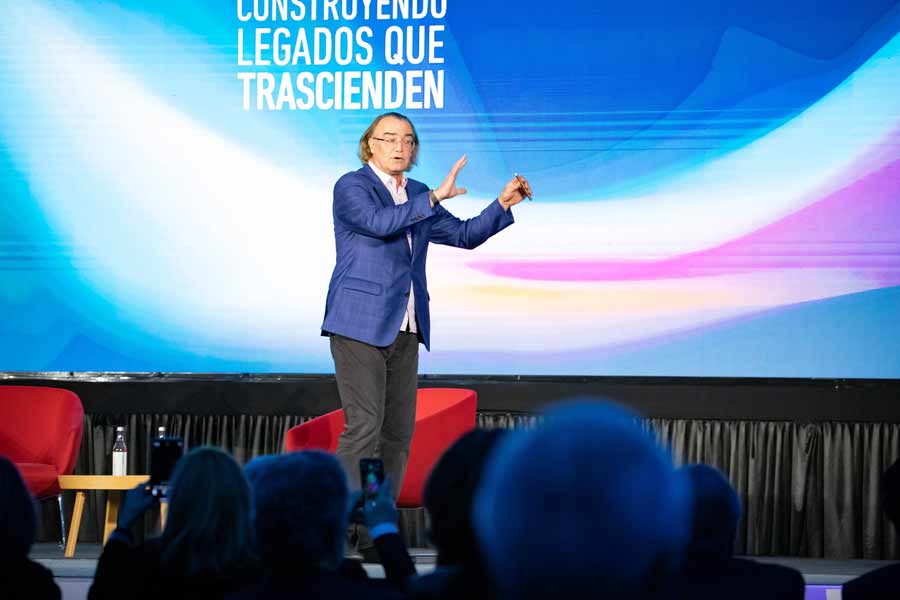
Technologies for 2050
Among other predictions he made during his talks, Leyden focused on 3 technologies he believes will experience significant development during the first 10 years and will have an impact by 2050.
- Artificial Intelligence (AI)
Leyden pointed out that today we are seeing the early stages of Artificial Intelligence and robotics, which will have a positive impact in 25 years’ time.
“For instance, we’re just seeing the beginning of Chat GPT and other AIs, which are only just scratching the surface of how AI might help humans do incredible things.”
- Clean Energies
Technological progress will make it possible to change energy sources, moving away from carbon-based sources to renewable or clean energies.
The expert emphasized that, among other benefits, this change will reduce costs and gave the example of solar panels, which is an increasingly affordable alternative.
Another milestone he mentioned is nuclear fusion, a historic discovery made in late 2022.
- Synthetic Biology and Biotechnologies
He is of the opinion that progress in biotechnologies will also be crucial to humanity.
“We now understand biological processes that we had never understood before to the point of being able to design biology and what experts call synthetic biology.
“We are able to understand genomes and all living things and possess the capacity to make genetic modifications using the CRISPR technique, which involves genetically modifying all living things and materials in an economical and simple way,” he added.
“The next 25 years will accelerate largely thanks to innovation. The future will also have more to do with human choices and the actions we take.”
The Education and Work of Future Generations
Leyden recommended the Tec and other universities to keep driving both education and technology and to continue to emphasize lifelong learning.
“There will be many more courses with streamlined learning processes for people to take online in 25 years’ time, which will help them prepare for the more sophisticated style of education that is on the way,” he commented.
The technological expert also said that another of today’s challenges is the cost of education; higher education has become very expensive, which is something that technology can help mitigate to bring costs down in the future.
With respect to the fear of technologies like AI or robotics replacing human labor and eliminating job opportunities, he pointed out that they will create more space by focusing on more transcendental aspects.
“As robotics and AI come in, we will essentially no longer be responsible for the more routine, boring jobs: those which also do not need to place much confidence in the worker.
“This means that the human workers in question can move up the chain to more interesting jobs that require more human judgment, empathy and singularly human qualities. I’m not really worried about mass layoffs,” he emphasized.
Therefore, he sent the following message to current students and future generations:
“You should focus on stimulating your curiosity in how to keep learning and how to innovate and, I would say, on developing an entrepreneurial mindset.
“Try to get into the correct field (one that is growing and in constant motion), find ways to connect with communities, and build a network of people who can support you,” the expert said.
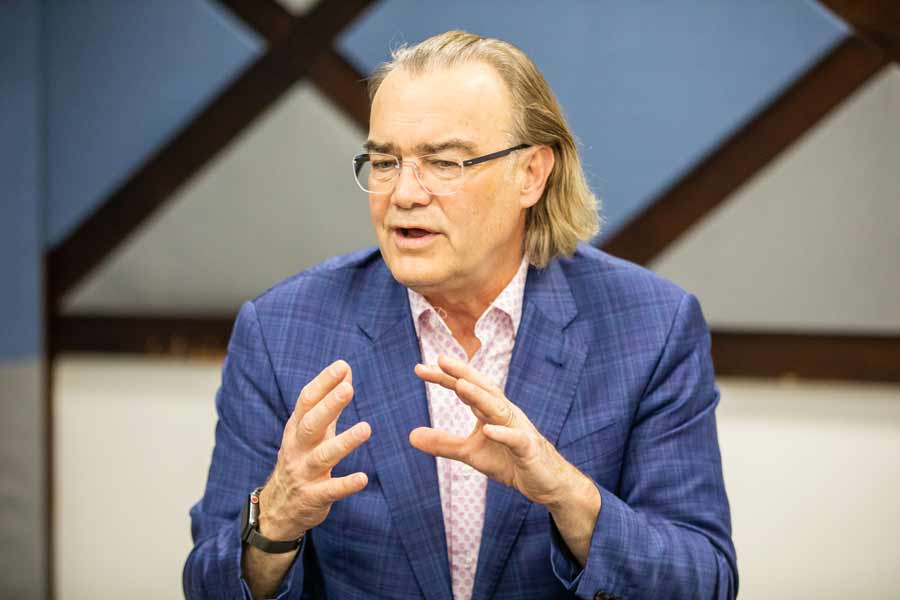
Climate Change and Other Major Challenges
Leyden pointed out that the largest challenge faced by humanity is global warming, which he hopes can be reversed or at least controlled over the coming decades.
“We must control it. The good news is that we have already made plans to rein in the worst excesses and I believe we can make it work. I don’t know if we can reverse it, but we are going to handle it much better and are well on the way to doing so,” he said.
The speaker pointed out that there are other major challenges, such as global capitalism which, he noted, has created inequalities in many sectors of society; however, he considered that this will become less of a problem in coming years.
Other changes he foresees will take place in political contexts around the world: “I believe there will be greater global coordination; yes, there are many great challenges, but we can also view each of them as a great opportunity.”
Although Leyden foresees an era of progress with great development opportunities, he also recognizes that there are things that could turn sour, even though he considers that unlikely.
“Nothing is inevitable. For all my talk of great progress and many possibilities, there are things like a nuclear war that could lead to a disastrous future; however, it seems more likely to me that we will experience overall growth towards a much better era,” he said.
Leyden predicts an era of progress and abundance for more people, with more affordable processes and services that will transform the global economy and generate thriving prosperity.
“I foresee great progress not just for technology, but also for humans. We’re going to have more people living decent lives, with lower levels of poverty, in a sustainable society of plenty in a world built on digital technologies,” he concluded.
ALSO READ:

